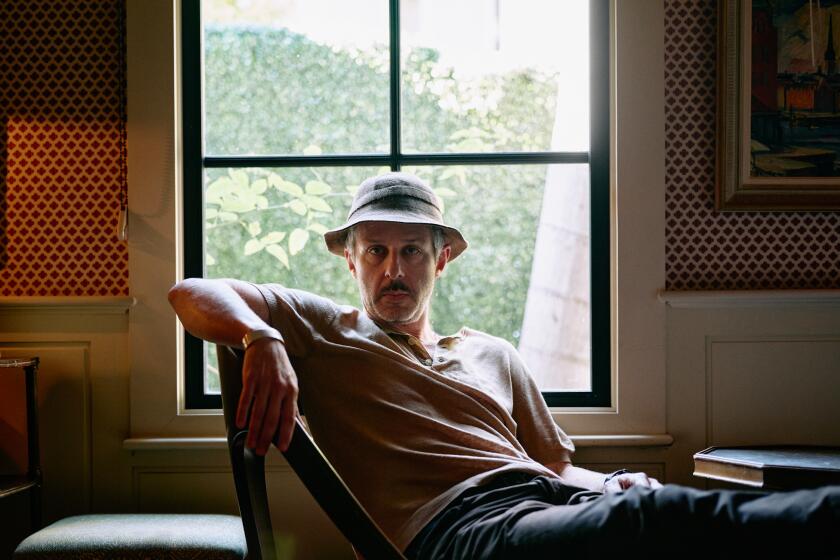Alex Cox, revolutionary
British director Alex Cox made his name in the 1980s with two cult hits, the nihilist fantasy “Repo Man” (1984) and the punk valentine “Sid & Nancy” (1986).
His third feature, “Walker” (1987), finally arriving on DVD this week (Criterion, $39.95), was the last film he made in Hollywood. At once a biopic of a forgotten 19th century soldier of fortune (played by Ed Harris) and an act of protest against the Reagan-sponsored Contra war in 1980s Nicaragua, it remains one of the boldest and strangest political films ever made for an American studio.
In the years since, Cox has become a genuine outlaw filmmaker, working with minimal means on the margins of the system. He has directed a string of inventive, low-budget films, including “Highway Patrolman” (1991) and “Three Businessmen” (1998), some of which have been released straight to DVD. He recently completed a feature, shot on digital video and produced by Roger Corman, called “Searchers 2.0,” a comic riff on the John Ford western. His website (alexcox.com) contains detailed information on future projects -- among them a slate of single-take “microfeatures” and a documentary about the Trident missile -- and offers free downloads of his produced and unproduced screenplays.
Speaking by phone from his home in the mountains of southern Oregon, Cox reflected on the perils of political filmmaking and the movie that just might have ended his Hollywood career.
When did you first become interested in Central American politics?
What was interesting to me was the way the media portrayed the Nicaraguan revolution. In 1979, right after the revolution, the Sandinistas were portrayed very favorably. We were told they were these passionate revolutionaries who had overthrown hated dictators. But then the slant in the media changed radically, and that’s what got me interested. I went to Nicaragua around the time of the presidential election in 1983, met some teenage guys and made the mistake of telling them I was a filmmaker. They said, “Well, you should come down here and make a film about Nicaragua.”
How did you learn of William Walker? And why did you make him the focus of the film?
There’s a sign on the wall of a church in Granada that says it was burned in the 1850s by the retreating army of the filibuster William Walker. When I got back to the States, I saw an article in Mother Jones about the continuity in American foreign policy. It wasn’t something that began in the 1920s with the Marines -- it started way back in the middle of the 19th century. And I’d never heard of this guy. But Walker was hugely popular in the 1850s. There were more columns and pictures in the newspapers devoted to Walker than all the presidents, which must have really annoyed them. In a hundred years, are people going to have heard of the “great liberator general” Tommy Franks, the hero of Fallujah? They’re just guys who serve a purpose and then they don’t.
With its broad humor and surreal anachronisms, the film has an unusual tone for a historical-military biopic.
We were all excited by the momentum of the revolution, and to go in there and make a conventional film would have been a bit lame. If we’d made a film in the usual American way it would have been from the point of view of a sympathetic journalist, who would go there with the very best of intentions and just watch things unravel, like “The Year of Living Dangerously” or “Courage Under Fire.” Our intention was actually to make a broadly popular film, which is why it’s full of jokes and violence and beautiful women.
Looking back now it seems amazing that “Walker” was made for Universal.
It was incredible, but since 1988 I have not had one offer of work from any of the Hollywood studios. I’ve existed entirely independent of the studios. You make one political film, and that’s it -- blacklisted. But that’s OK, it’s a good film to be blacklisted for. In the end, it has to stand on its own merit, not because it was made with good intentions, and I actually think it does. It’s crazy, it’s about a madman, but it moves quickly, many exciting things happen.
More to Read
Only good movies
Get the Indie Focus newsletter, Mark Olsen's weekly guide to the world of cinema.
You may occasionally receive promotional content from the Los Angeles Times.










